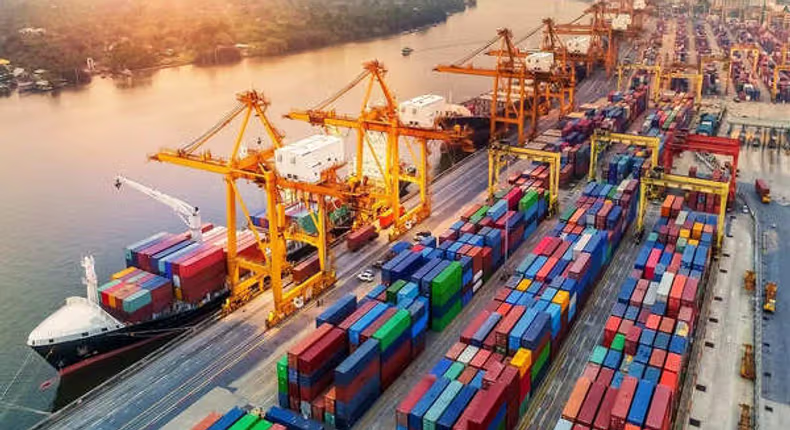The African Trade Report (2024) highlights key players in intra-African trade, focusing on countries that lead in both imports and exports across the continent. Here’s a summary of the top 10 countries involved in intra-African trade:
Top 10 African Countries by Intra-African Trade
- South Africa
- Intra-Africa Imports: $29.6 billion
- Intra-Africa Exports: $9.59 billion
- Total Intra-Africa Trade: $39.19 billion
- Côte d’Ivoire
- Intra-Africa Imports: $11.38 billion
- Intra-Africa Exports: $4.7 billion
- Total Intra-Africa Trade: $16.08 billion
- Egypt
- Intra-Africa Imports: $6.61 billion
- Intra-Africa Exports: $1.63 billion
- Total Intra-Africa Trade: $8.24 billion
- Nigeria
- Intra-Africa Imports: $5.63 billion
- Intra-Africa Exports: $2.36 billion
- Total Intra-Africa Trade: $7.99 billion
- Zimbabwe
- Intra-Africa Imports: $2.9 billion
- Intra-Africa Exports: $4.73 billion
- Total Intra-Africa Trade: $7.63 billion
- Mali
- Intra-Africa Imports: $2.52 billion
- Intra-Africa Exports: $5.03 billion
- Total Intra-Africa Trade: $7.55 billion
- Ghana
- Intra-Africa Imports: $6.02 billion
- Intra-Africa Exports: $1.33 billion
- Total Intra-Africa Trade: $7.35 billion
- Zambia
- Intra-Africa Imports: $3.17 billion
- Intra-Africa Exports: $3.75 billion
- Total Intra-Africa Trade: $6.92 billion
- DR Congo
- Intra-Africa Imports: $3.34 billion
- Intra-Africa Exports: $3.55 billion
- Total Intra-Africa Trade: $6.89 billion
- Namibia
- Intra-Africa Imports: $3.15 billion
- Intra-Africa Exports: $3.12 billion
- Total Intra-Africa Trade: $6.27 billion
Regional Trade Insights
- Southern Africa: Leading in intra-African trade, accounting for a significant portion of total trade within the continent.
- West Africa: The second-largest region for intra-African trade, contributing 25.7% of the total.
- East Africa: The third-largest region, contributing 14.1%.
- North and Central Africa: Contributing about 12.4% and 6.6%, respectively.
Challenges and Future Outlook
Several factors have been identified as barriers to intra-African trade, including:
- Increased inflation and economic uncertainty
- High transport costs
- Unfavorable foreign exchange rates
- Political instability
- High tariff costs
The African Continental Free Trade Agreement (AfCFTA) is expected to address these challenges and significantly boost intra-African trade by 52.3% by 2025, potentially increasing Africa’s income by up to $450 billion by 2035.
This comprehensive view of intra-African trade highlights the key players and regional dynamics shaping the continent’s economic landscape.

